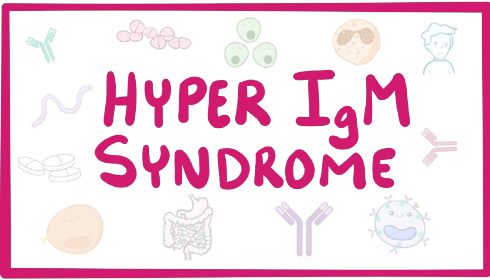
Hyper IgM Syndrome
Hyper IgM syndrome is a rare and primary immunodeficiency disorder characterized by defects in the immune system, specifically affecting the production of immunoglobulin class-switching. Immunoglobulins, also known as antibodies, play a crucial role in the body's defense against infections. In individuals with Hyper IgM syndrome, there is a deficiency in the ability to switch from producing IgM antibodies to other types such as IgG, IgA, or IgE.
This genetic disorder is typically inherited in an X-linked recessive manner, affecting males more frequently than females. The condition arises from mutations in genes that encode for proteins essential for the class-switching process, particularly the CD40 ligand (CD40L) on T cells or other molecules involved in the interaction between T and B cells.
As a result of the impaired class-switching mechanism, individuals with Hyper IgM syndrome often exhibit a higher susceptibility to bacterial, viral, and fungal infections. Common manifestations include recurrent respiratory infections, gastrointestinal issues, and an increased risk of opportunistic infections. The severity and frequency of infections can vary among affected individuals.
Early diagnosis of Hyper IgM syndrome is crucial for effective management. Treatment often involves immunoglobulin replacement therapy to provide the deficient antibodies and reduce the risk of infections. Additionally, prophylactic antibiotics may be prescribed to prevent certain types of infections. Stem cell transplantation has been explored as a potential cure, especially in cases where the disorder is more severe.
Living with Hyper IgM syndrome requires a comprehensive and multidisciplinary approach involving immunologists, infectious disease specialists, and other healthcare professionals. Regular monitoring, preventive measures, and prompt treatment of infections are essential components of managing the condition. Ongoing research continues to improve our understanding of Hyper IgM syndrome, with the hope of developing more targeted and effective therapeutic strategies for affected individuals.